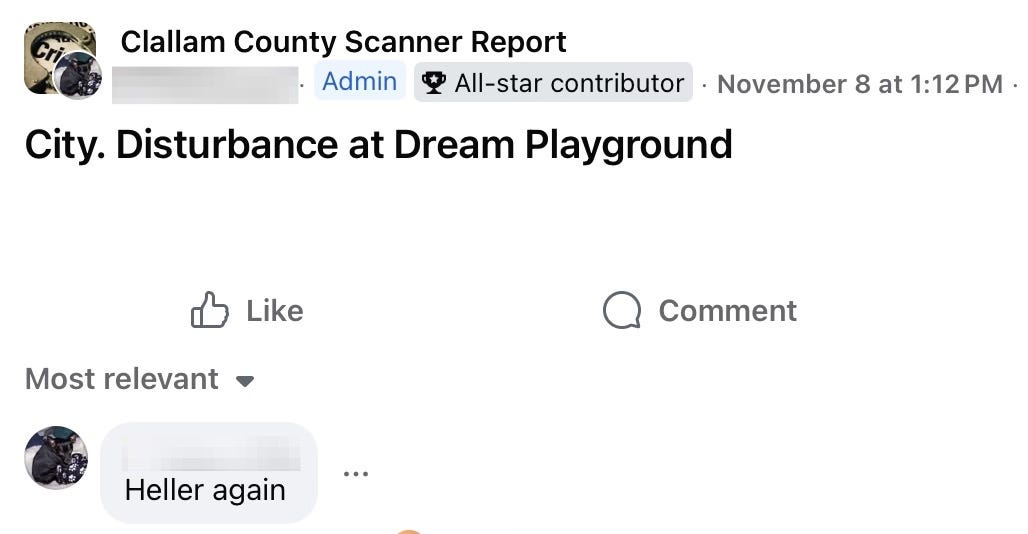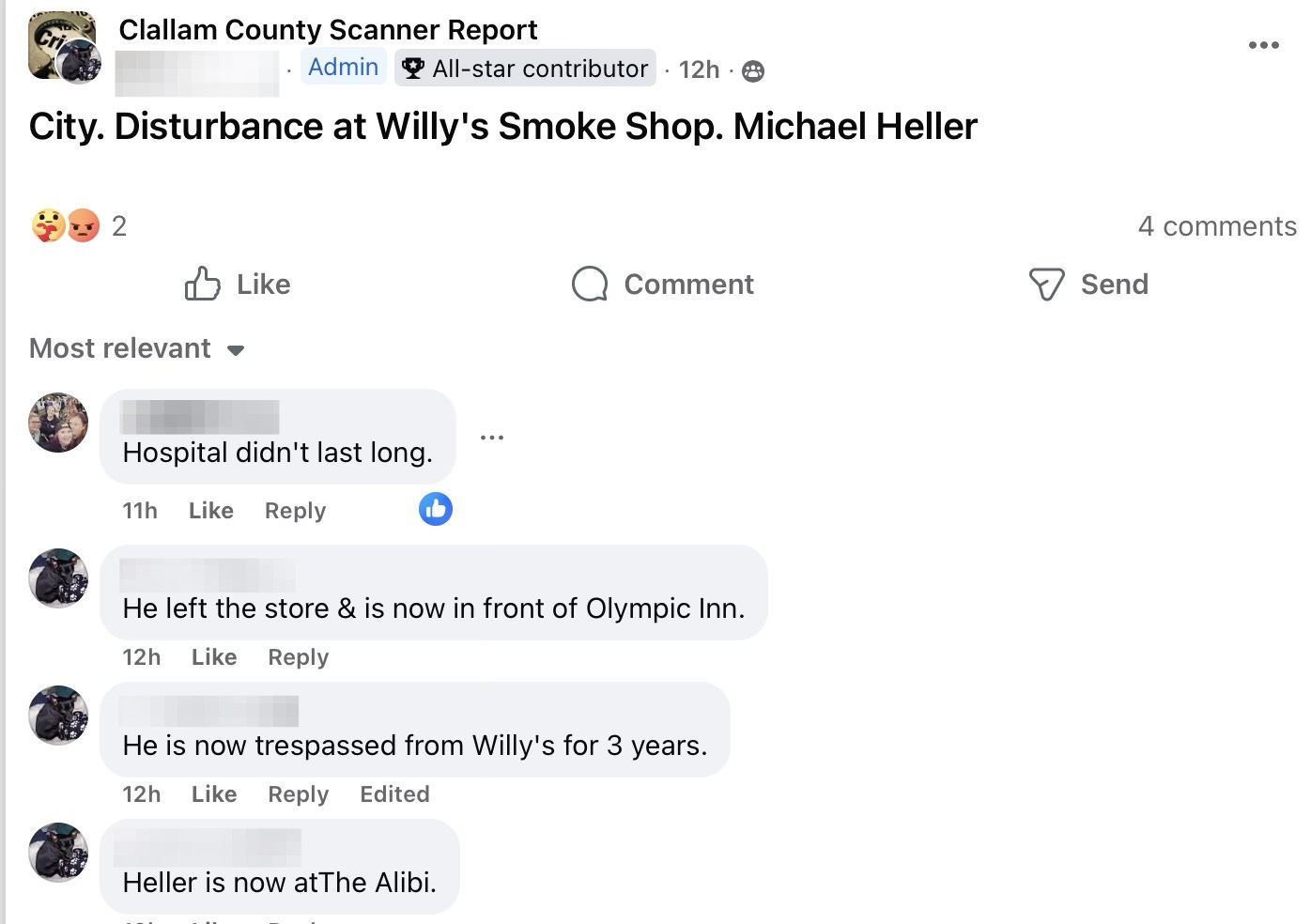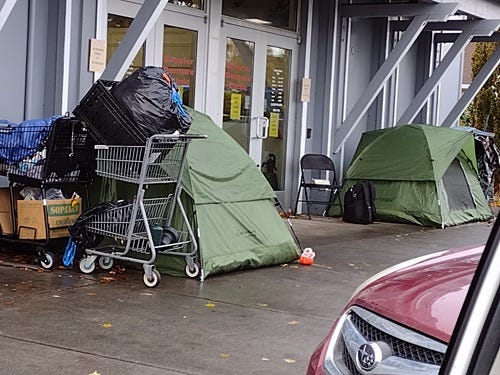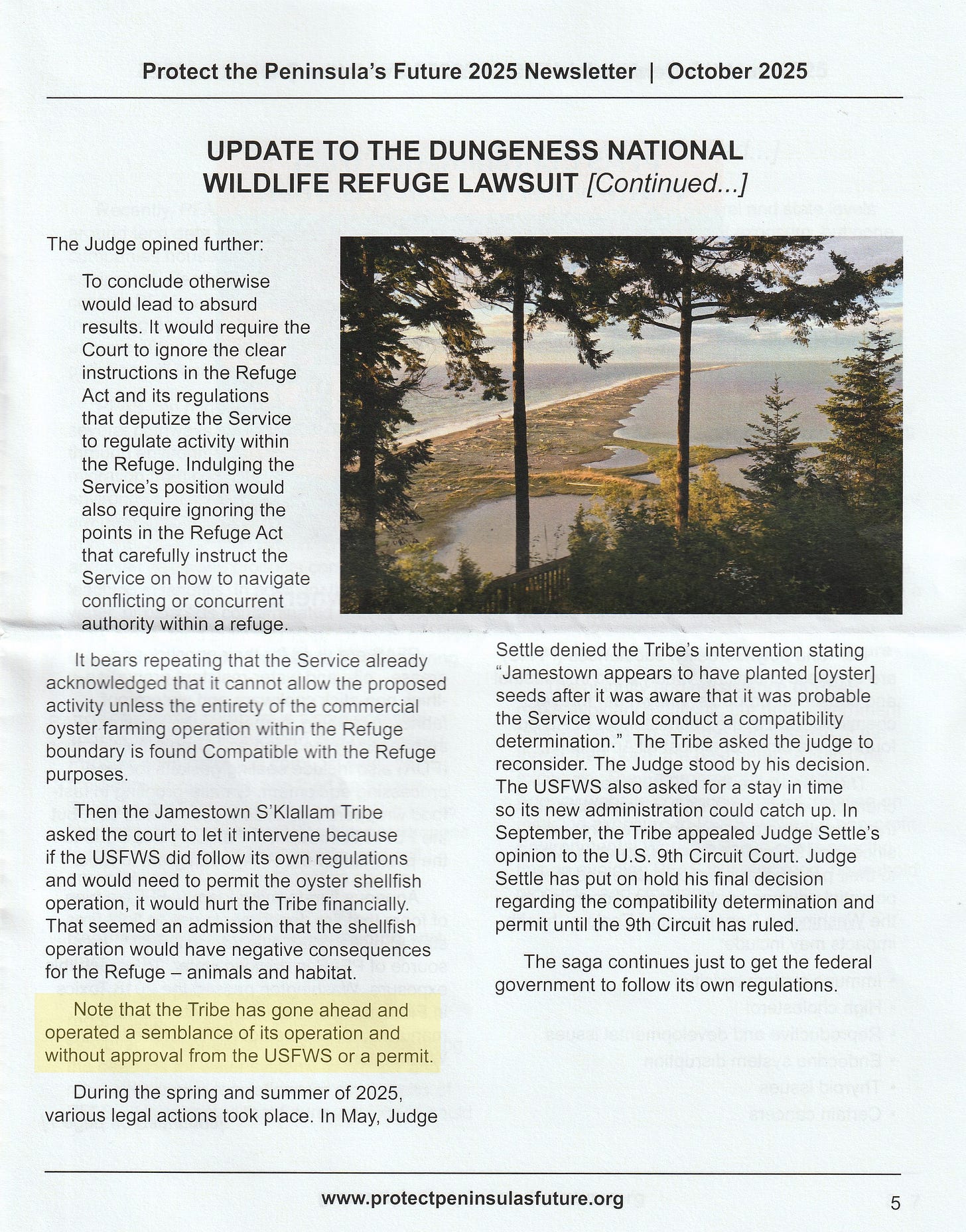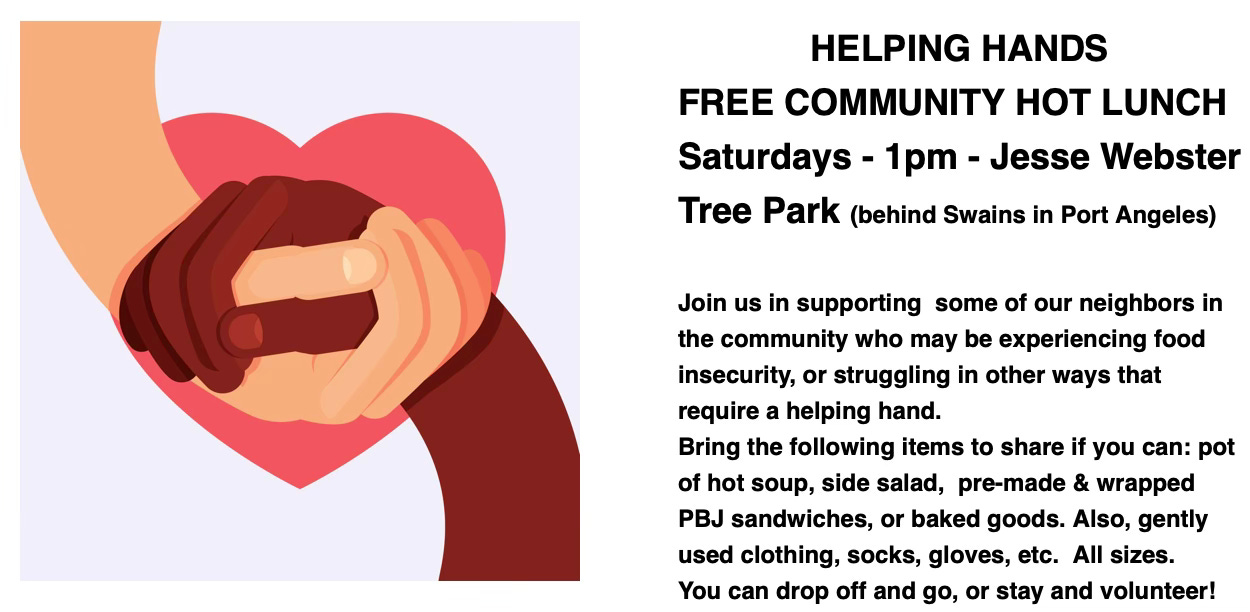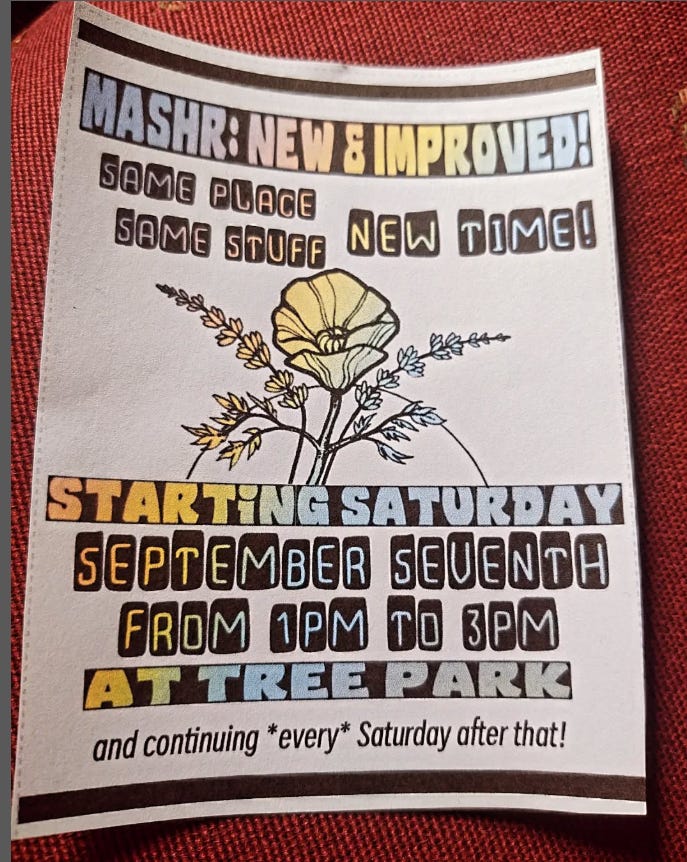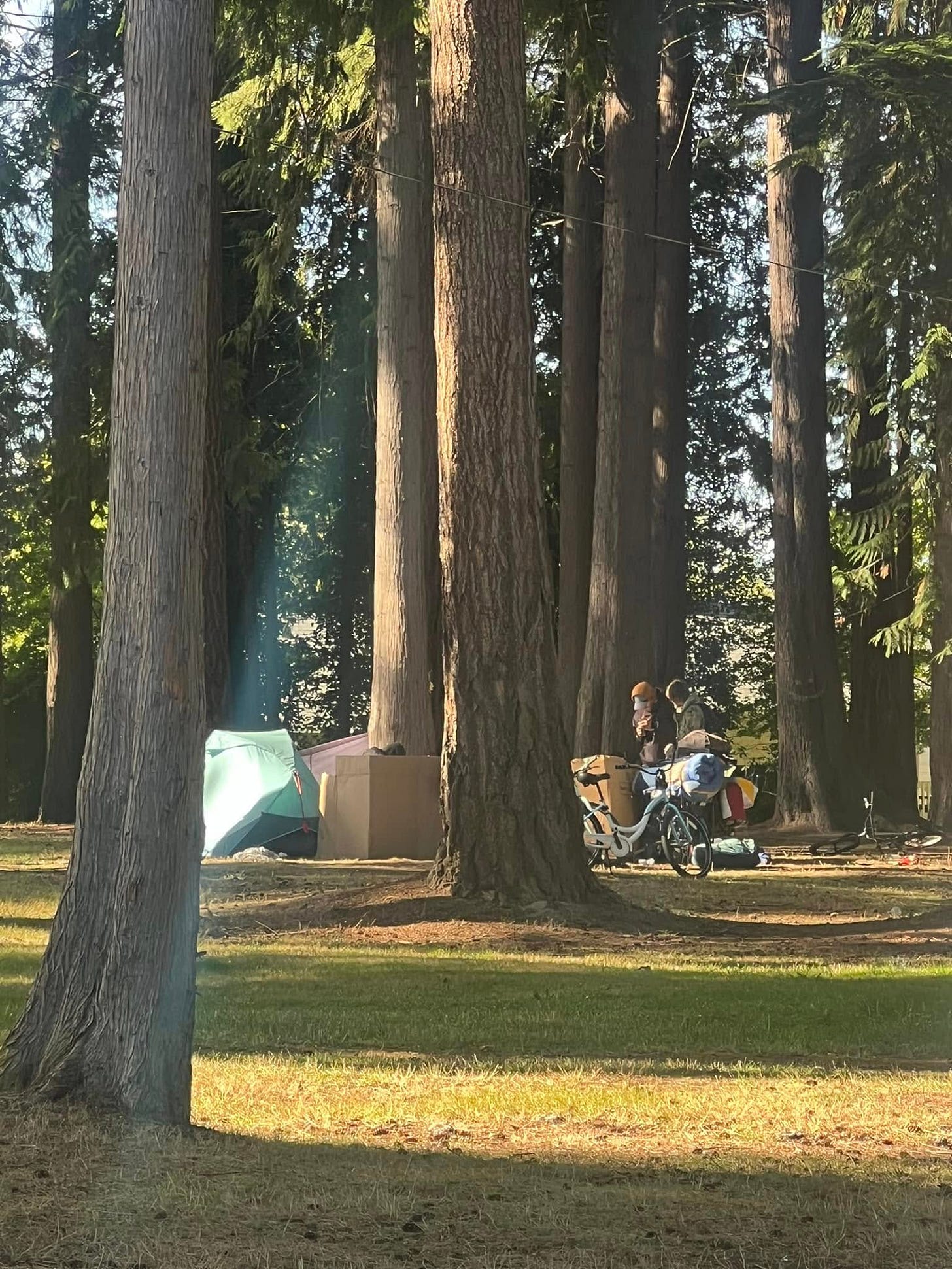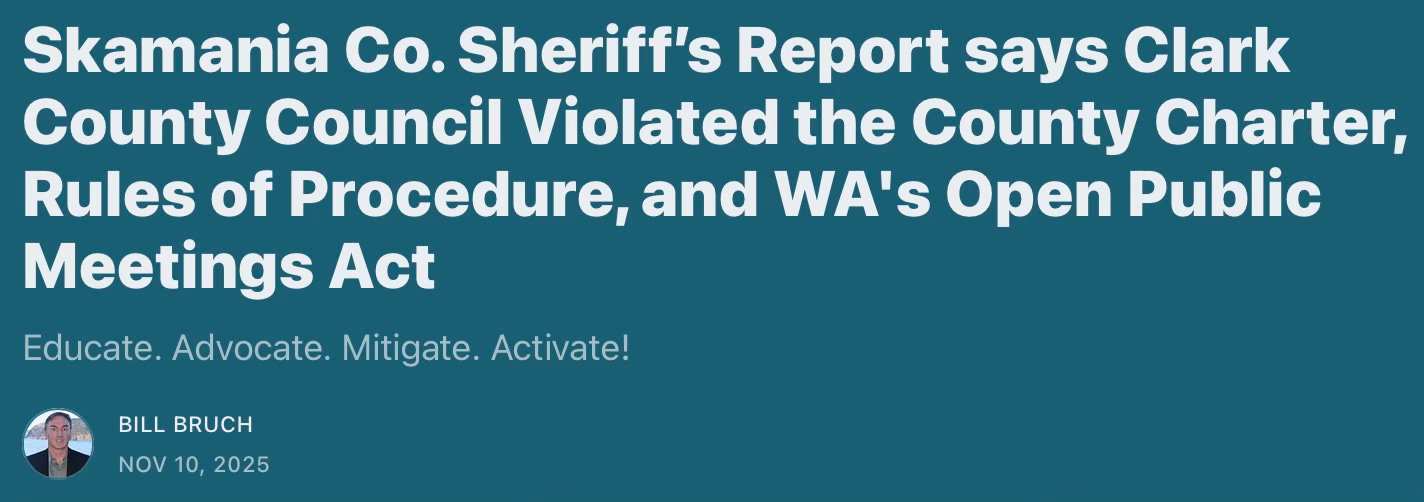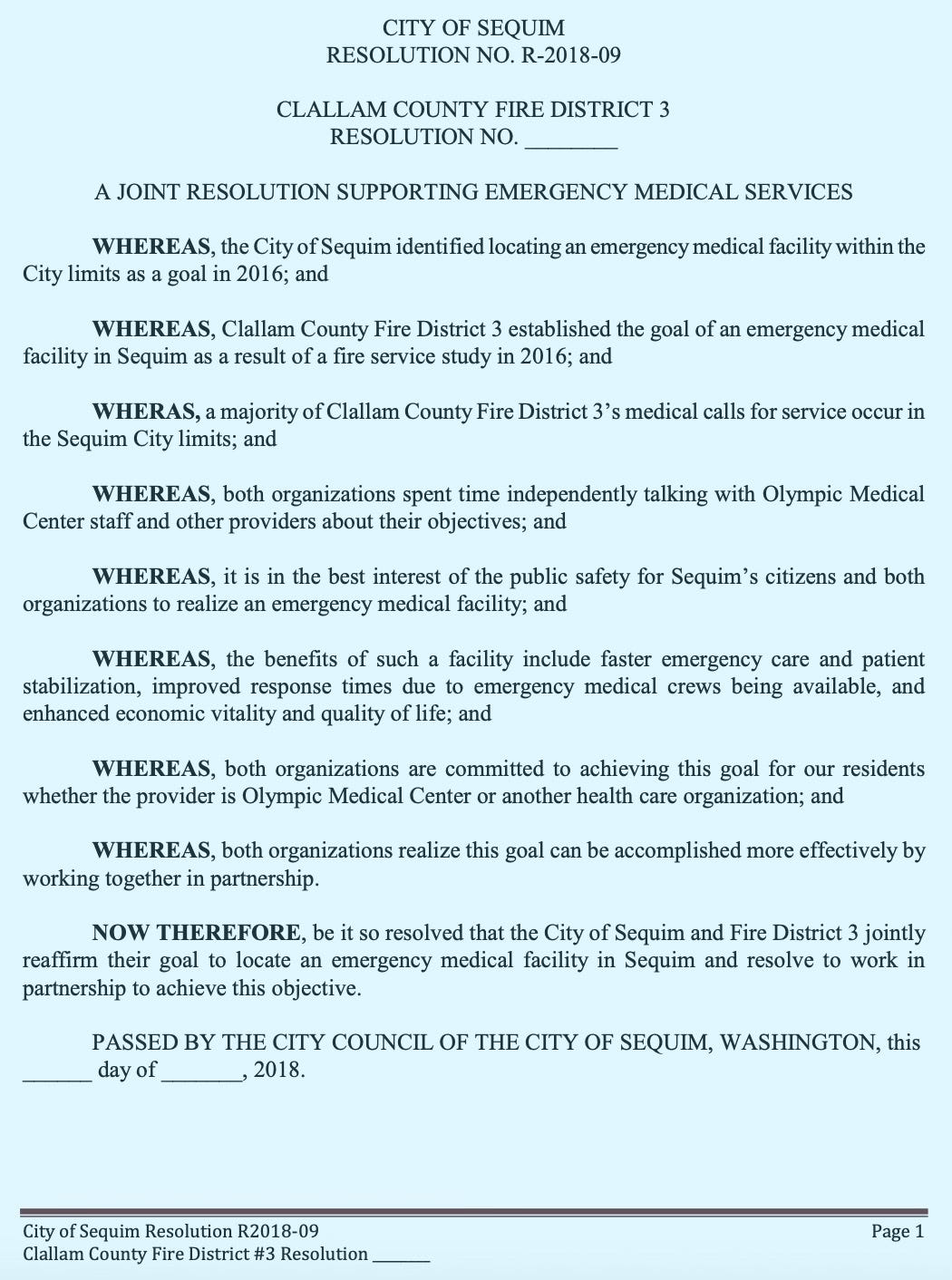From repeat offenders cycling through the courts to taxpayer-funded mismanagement, this week’s stories highlight what happens when accountability takes a back seat. Whether it’s local boards asleep at the wheel, politicians dodging transparency, or organizations rewriting history while preaching equity, one theme runs through it all—rules for some, excuses for others.
A Familiar Face in the Police Log
Michael Heller’s name keeps popping up. The repeat offender—well known to Port Angeles residents and police alike—was reportedly causing a disturbance at the Dream Playground on Saturday.
By Sunday, he was demanding to be taken to the hospital under the Involuntary Treatment Act.
Hours later, he was near the Travelers Motel again, allegedly creating another disturbance at Willy’s Smoke Shop.
This isn’t just one troubled individual—it’s the cost of a revolving-door system. Every police call, ambulance ride, and emergency room visit is paid for by the public. Meanwhile, the rest of the community tiptoes around the same few offenders who seem to face no lasting consequence.
It’s the kind of quiet breakdown that erodes confidence in law and order. For small businesses, first responders, and families just trying to use the playground, it’s a daily reminder that the system protects the problem instead of solving it.
Squatting by Permission?
A Sequim resident recently contacted the Sequim Police Department about a homeless encampment in front of the Sheeler Denture Clinic—directly across from the police station.
The Sequim Police Department’s official response? That the people camping there have permission from a nearby business to sleep under the eaves during bad weather, and that officers “monitor the situation.”
“Thanks for reaching out and for sharing the article. It covers a lot of ground—facts, opinions, different scenarios, and other pieces of information. Regarding encampments near the civic center, we were informed that at times and during inclement weather a local business allows two unhoused people to seek shelter under an exterior eve during non-business hours. This is not a daily occurrence or permanent encampment. We have contacted people there and monitor the situation to address any violations of law or code. We have also referred them to services and local outreach staff are in regular contact with them as well. There is no permanent shelter for unhoused persons in Sequim, however there is a temporary warming center that opens when temperatures approach freezing. Transportation can also be arranged if a person desires to go to a shelter elsewhere.”
The problem: sidewalks are public right-of-way, not private property. Allowing some to occupy them sets a dangerous precedent—one where the rule of law bends to convenience and selective enforcement.
If we’re now relying on business owners to “manage” public sidewalks, we’ve lost the definition of public space. What happens when someone decides the park or the courthouse steps are next?
The Pool that Drowned in Its Own Mismanagement
Marolee “Mimi” Smith Dvorak’s deep dive into the William Shore Memorial Pool District is a must-read. Once a proud community resource named after a beloved swim teacher, the pool is now the subject of a state audit and fraud investigation.
The report paints a picture of negligence: missing reconciliations, duplicate check numbers, and a director who personally benefited from at least $41,000 in questionable payments. The Board—made up of two county commissioners and two city council members—appears to have slept through every fiduciary duty they owed taxpayers.
The district’s founding promise was local control, transparency, and community stewardship. What we got was a lesson in how quickly “save our pool” can turn into “sink our trust.”
When Everyone’s “Protecting” the Environment
Protect the Peninsula’s Future claims to safeguard the Dungeness Spit Refuge. The Jamestown S’Klallam Tribe says the same, while introducing non-native oysters for commercial harvest inside that refuge.
According to PPF’s October newsletter, the Tribe has moved forward “without approval from the USFWS or a permit.” If true, that’s a serious contradiction to the image of environmental stewardship the Tribe promotes in public.
Two groups, both claiming to defend the ecosystem—one for preservation, one for profit. Which one gets the final say? The answer, as usual, depends on who’s connected, not who’s correct.
The Party and the Park
The Clallam County Democrats invited supporters to “help neighbors in need” with soup, sandwiches, and clothes—at Jesse Webster Park, also known as “Tree Park.” It’s a nice sentiment, except the park itself has become a tent city littered with needles and debris.
What their email doesn’t mention is that the event is affiliated with a private syringe exchange and harm reduction organization called “MASHR.”
What used to be a gathering space for families is now effectively off-limits. When Clallam County Democrats partner with an event to distribute drug paraphernalia without addressing why the park has deteriorated, it feels tone-deaf at best, enabling at worst.
If we can’t keep our public parks safe and clean, what good are feel-good gestures in the name of compassion?
When Inclusion Becomes Exclusion
The League of Women Voters of Washington proudly declares zero tolerance for discrimination “of any kind,” including race.
Then, in the same breath, their Land Acknowledgment pledges to “amplify the voices of Indigenous people” and partner with tribes on policy.
That’s not inclusion—that’s favoritism disguised as virtue. Supporting one group based on race while claiming to reject all racial discrimination is a textbook oxymoron.
Diversity and equity sound noble. But when DEI becomes a political weapon rather than a unifying principle, it stops being about fairness and starts being about control.
Secret Security and Open Meetings
The Charter Review Commission has quietly pulled discussion of the thousands of taxpayer dollars spent on Commissioner Jim Stoffer’s private security detail from its agenda three separate times. Citizens are asking whether Chair Susan Fisch, Commissioner Stoffer, and other county officials may have violated the Open Public Meetings Act (OPMA) by coordinating decisions outside public view.
This isn’t theoretical—Clark County faced a nearly identical issue earlier this year, when its commissioners were found to have violated the OPMA by conducting serial communications over email and private discussions to reach a consensus outside a public meeting. The court ruled that such behavior, even when motivated by convenience or “safety,” still undermines transparency and the public’s right to know.
Washington law is clear: public business must be conducted in public. When Clallam’s elected officials start redacting agenda items and holding sidebar conversations, they’re walking the same path that cost another county thousands in penalties and credibility. This isn’t about one person’s security—it’s about whether elected officials believe they answer to the public, or to themselves.
“Free” Lunch Isn’t Free
The Sequim School District just announced that every student will receive free breakfast and lunch this year. The problem? Nothing is free—taxpayers are footing the bill.
This year, every student in the Sequim School District including Greywolf, Helen Haller, Sequim Middle School, Sequim High School, and Olympic Peninsula Academy, can enjoy breakfast and lunch at no cost to families, every school day, all year long.
Even though meals are free, it’s still very important for families to complete the 2025–26 Child Nutrition Eligibility & Education Benefit Application. Submitting this form helps our schools receive essential state funding that supports classrooms, student activities, and programs that enrich learning for all students.
Fill out the application online here: https://cdnsm5-ss14.sharpschool.com/UserFiles/Servers/Server_1012671/File/Forms/2025-26child_nutrition_eligibility_and_education_benefit_application_fillable.pdf
The more forms submitted, the more resources we can bring into our schools. Thank you for helping keep our schools strong and supporting every student!
The announcement doesn’t mention that the funding comes from record-breaking state tax collections—over $9 billion last session alone. Instead, it encourages families to fill out eligibility forms that bring “more resources” to schools.
If public schools want to teach responsibility, they could start by being honest about where the money comes from.
Sequim’s Medical Promise, Still Unfulfilled
In 2018, Sequim and Fire District 3 vowed to work together to build an emergency medical facility within city limits. Seven years later, that goal remains a promise on paper.
What’s been accomplished since that resolution was written? The Jamestown S’Klallam Tribe built a MAT clinic and is constructing a mental health hospital—both funded with tens of millions in state and federal money. The city’s own medical ambitions never left the drawing board.
It’s a stark contrast: public leaders talk about serving residents, while you pay sovereign interests to quietly build their own healthcare empire.
Food Banks and Financial Lessons
Clallamity Jen recently uncovered that the Port Angeles local food bank newsletter was promoting a book that blames hunger on “affluent oppression.”
Clallamity Jen admits that her own financial troubles were self-inflicted—but she overcame them through personal responsibility.
Instead of dividing people by wealth, maybe our nonprofits should focus on teaching financial literacy, accountability, and planning—the real tools that break cycles of dependency.
Charity without accountability just feeds the problem. Clallam County deserves better than moral lectures dressed up as meals.





